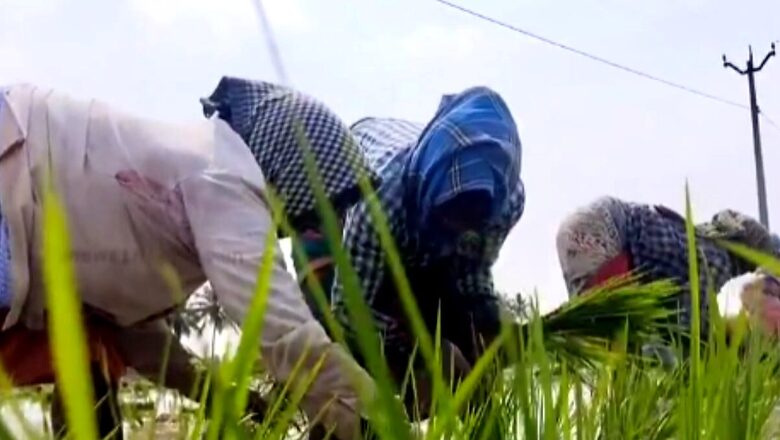
views
Water was discharged from Mettur Dam on June 12 to support Cauvery Delta irrigation. Four days later, it was distributed from Kallanai to Kaveri, Vennar, and Kallanai canals for agricultural use. The supplied water facilitated kuruva cultivation across 5.20 lakh acres in the delta districts. Unfortunately, the shortage of water adversely affected 3 lakh acres of short-grain crops. Following the successful harvest of the remaining paddy crops, intensive harvesting of short-grain rice is currently underway in the delta districts. Concurrently, a series of protests is going on, urging the release of water into the Cauvery for the upcoming Samba season.
Now, farmers in Thanjavur district equipped with electric motors are actively engaging in samba planting. In Bachur village, women participating in the planting work sang Murugan Bhakti songs and folk melodies to maintain their enthusiasm and effectively proceed with the planting.
While protests persist for the release of water into the Cauvery, Delta farmers are anticipating rain, hoping that “Lord Varuna will be merciful” to safeguard the samba crop. The primary reason for this optimism is the announcement by the Chennai Meteorological Department that the Northeast Monsoon will commence on October 27.
In a persistent demand, Delta farmers are advocating for a long-term solution to their water woes. They urge the Karnataka government to open water channels promptly to safeguard the interests of the countless farmers, who are reliant on Cauvery water for their agricultural needs. Farmers will be otherwise compelled to purchase water for their crop cultivation, exacerbating their challenges.
Samba rice is predominantly cultivated in the southern Indian state of Tamil Nadu during the Samba season, which spans from August to January. It is specifically known as Samba rice because it requires a longer growing period in comparison to other varieties of rice. In short, Samba cultivation is the Tamil term for rice cultivation season.




















Comments
0 comment